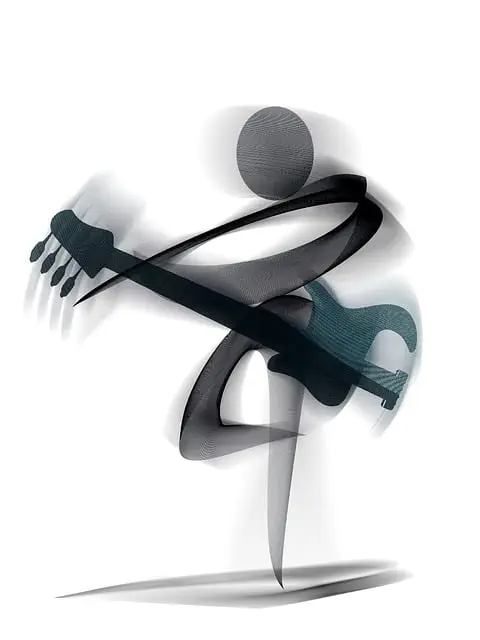In the digital age, Linux's open-source nature has facilitated content sharing through initiatives like "Play DivX on Linux," eliminating barriers set by proprietary software. Historically challenging DivX video playback on Linux due to codec lack and compatibility issues is now seamless thanks to innovative solutions. This evolution enables global communities to share multimedia content without plugins, fostering creativity and collaboration across diverse operating systems. Future digital content sharing will further enhance through advanced decoding, real-time editing tools, and cloud storage integration, making Play DivX on Linux a game-changer for multimedia projects.
The digital landscape is evolving, and Linux is at the forefront, fostering a new era of content sharing and collaboration. As one of the most popular open-source operating systems, Linux has seen a rise in adoption, but challenges remain, particularly with media playback. This article explores these hurdles, delving into the impact of Linux on digital content and introducing solutions like Play DivX to facilitate seamless integration. We also analyze the benefits of enhanced collaboration enabled by this technology and forecast its future potential to revolutionize content sharing platforms.
The Rise of Linux and its Impact on Digital Content

In the digital age, the rise of Linux has brought about a significant shift in how we interact with and share content. One of its most notable impacts is on media playback and digital content sharing. Linux, an open-source operating system, has enabled users to play various multimedia formats, including DivX, smoothly. This capability has democratized access to entertainment and educational content, breaking down barriers previously set by proprietary systems.
The Play DivX on Linux initiative has been a game-changer, fostering a new era of digital content sharing and collaboration. By offering a platform that supports a wide range of multimedia codecs, Linux users can easily access and share files without the need for additional software or plugins. This accessibility has encouraged creativity, collaboration, and the exchange of ideas across communities worldwide.
Challenges in Playing DivX on Linux Systems

Playing DivX on Linux systems has traditionally presented certain challenges due to the platform’s unique hardware and software configurations. One of the primary hurdles is compatibility; while many modern Linux distributions offer robust multimedia support, older or less common ones might lack the necessary codecs to playback DivX files, a popular video format from the early 2000s.
This issue stems from DivX’s complex decoding requirements, which often necessitate dedicated libraries and plugins that may not be readily available or integrated into Linux distributions out of the box. As a result, users often find themselves installing additional software packages, such as VLC media player or K-Lite Codec Pack, to ensure smooth playback of DivX content on their Linux machines.
Introducing Solutions for Seamless Integration

In today’s digital era, content sharing and collaboration have become seamless with innovative solutions that transcend traditional barriers. One such game-changer is the ability to Play DivX on Linux systems smoothly. This opens up a world of possibilities for users who prefer open-source platforms, ensuring they don’t miss out on the rich array of multimedia experiences enjoyed by their Windows counterparts.
Through advanced codecs and seamless integration tools, playing DivX videos on Linux has never been easier or more enjoyable. These solutions not only bridge the gap between operating systems but also enhance overall user experience, fostering a new era of digital content sharing where accessibility and compatibility are paramount.
Benefits of Enhanced Collaboration with Play DivX on Linux

The integration of Play DivX on Linux brings a multitude of benefits, revolutionizing digital content sharing and collaboration. Users can now seamlessly play and share various video formats, ensuring compatibility isn’t a barrier to connection. This platform enables folks to foster a vibrant symphony of ideas, where diverse media can be exchanged and appreciated without technical hurdles.
Enhanced collaboration is achieved through simplified access to multimedia content. With Play DivX, Linux users can easily collaborate on projects involving videos, from editing to sharing finished products. It’s a game-changer for teams working on digital initiatives, promoting productivity and streamlining workflows.
Future Prospects: Revolutionizing Content Sharing Platforms

The future of digital content sharing and collaboration looks bright, with new platforms aiming to revolutionize the way we interact with media. One exciting prospect is the integration of Play DivX on Linux systems. This technology promises to bring the same seamless playback experience that DivX has offered on Windows for years, now extended to a broader user base on open-source operating systems. By leveraging advanced video decoding and encoding technologies, these platforms can enhance streaming quality while reducing file sizes, making them more efficient and accessible.
Moreover, the future prospects include improved collaboration features, such as real-time editing capabilities and cloud-based storage integration. Users will be able to work together on projects, share drafts, and provide feedback seamlessly from their devices, regardless of their location. This democratization of content creation and sharing is set to foster innovation, encourage creativity, and open up new avenues for digital storytelling and artistic expression, all while ensuring compatibility with diverse operating systems like Linux.
The evolution of Linux and its multimedia capabilities, coupled with innovative solutions like seamless Play DivX on Linux integration, signifies a new era in digital content sharing and collaboration. As we look ahead, the future promises revolutionary changes in content sharing platforms, making it an exciting time for tech enthusiasts and content creators alike. The ability to effortlessly enjoy and contribute to a diverse range of digital media, regardless of operating system, will foster greater connectivity and creativity in our increasingly digital world.
